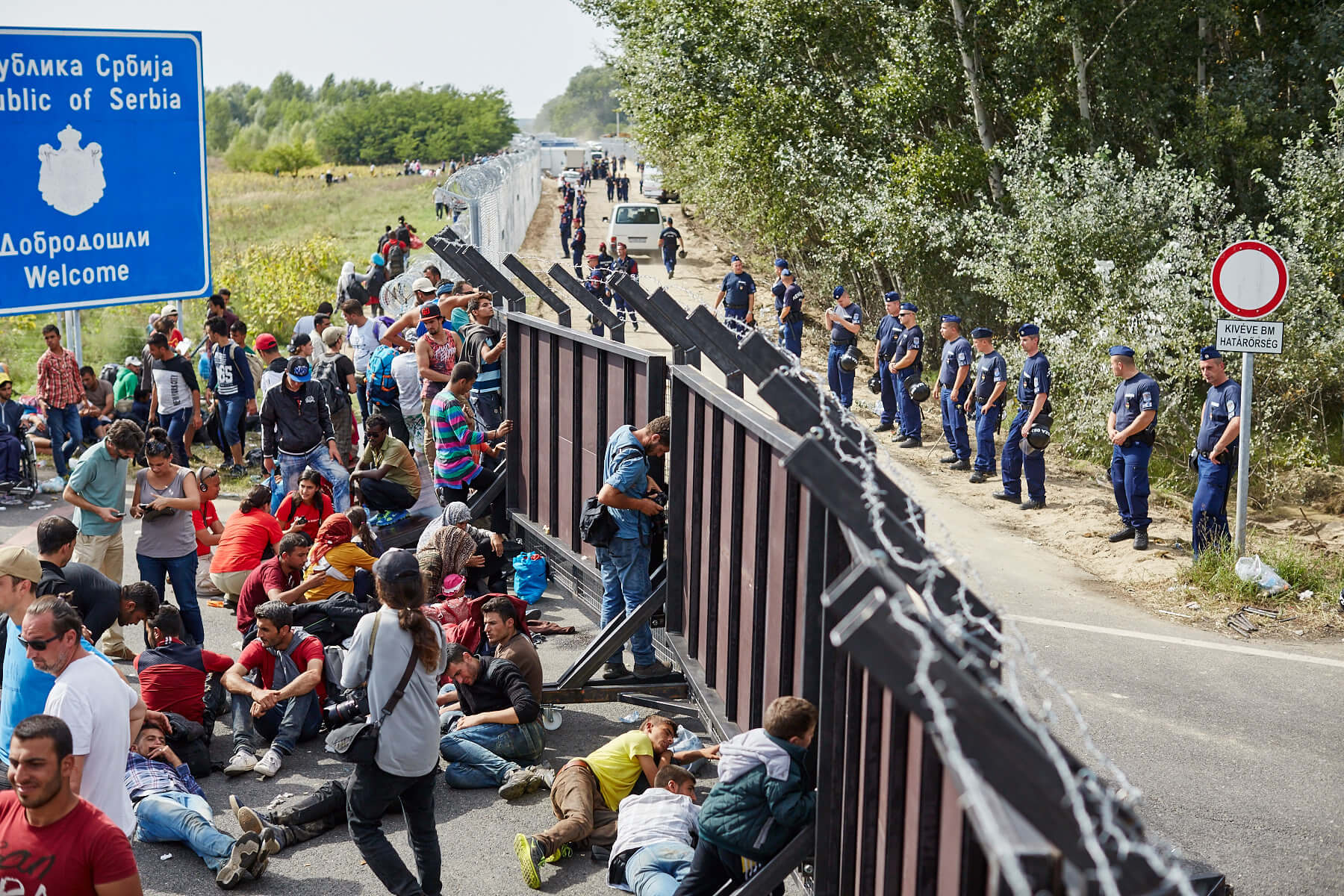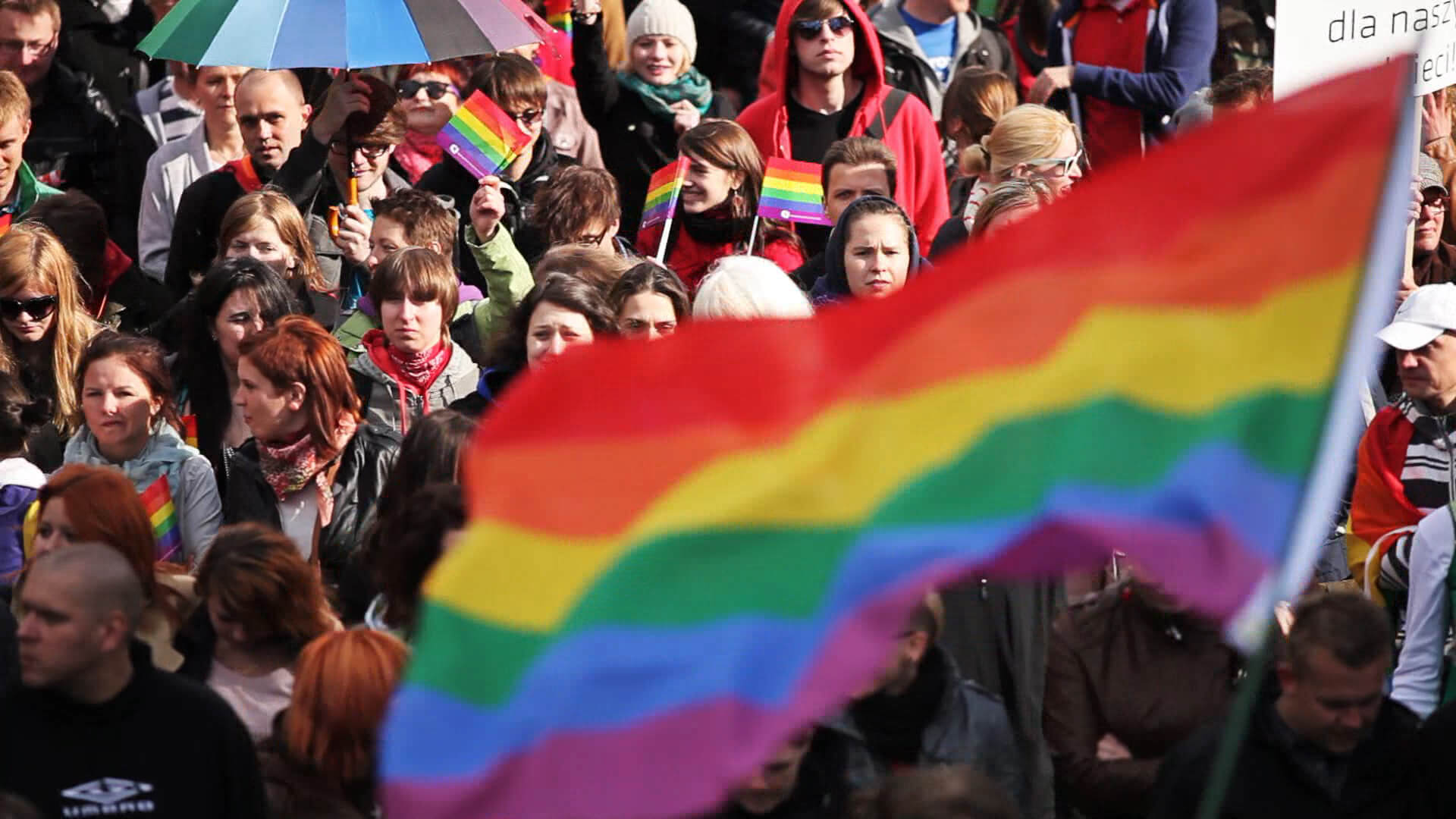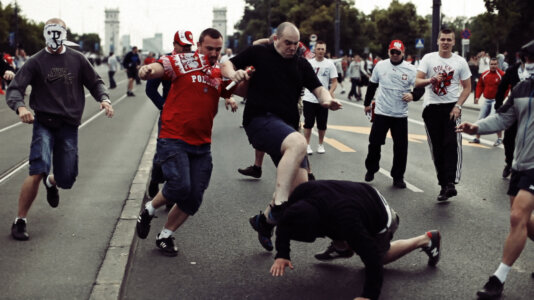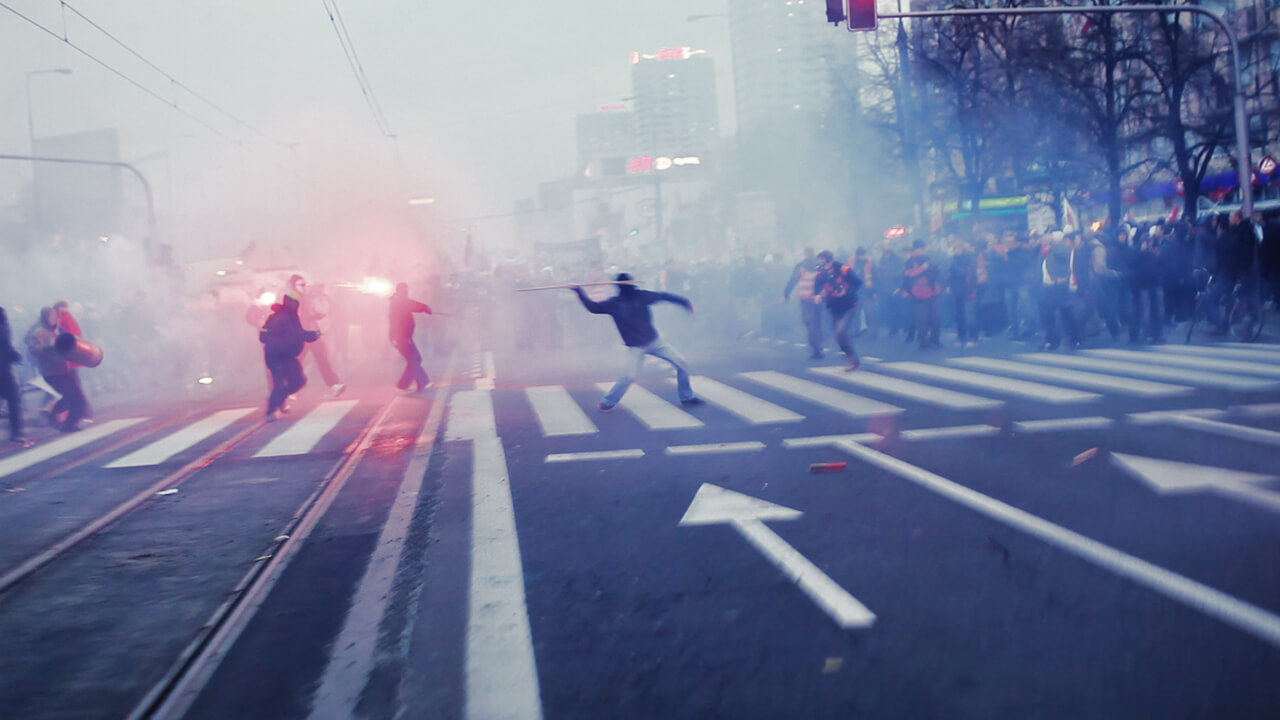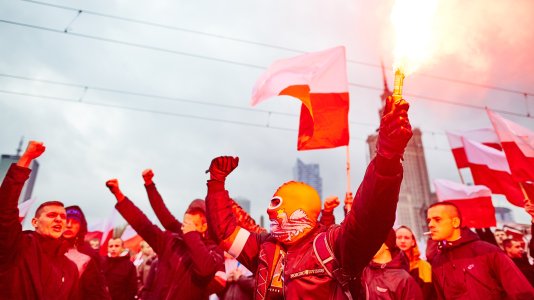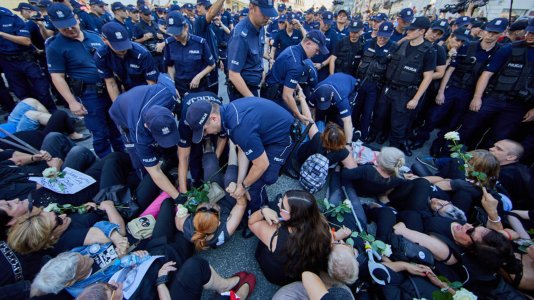On April 29, 2017, the far-right nationalist group Obóz Narodowo-Radykalny (ONR, or National Radical Camp) held a controversial march in Warsaw, Poland. The event marked the anniversary of the ONR’s founding in the 1930s, an era when the group was known for its xenophobic, anti-Semitic, and ultra-nationalist agenda.
The march was met with widespread criticism from human rights organizations, left-wing activists, and civic groups. Opponents accused the ONR of promoting hate speech and extremist ideologies, echoing pre-World War II nationalist sentiments. Many protesters called for a ban on such gatherings, but the march proceeded under heavy police protection.
The event highlighted rising concerns about the resurgence of nationalist movements in Poland. Critics pointed to the Law and Justice Party (PiS) government, accusing it of emboldening far-right groups through its own nationalist rhetoric and policies. However, government officials did not intervene to stop the march, fueling further debate over the state’s responsibility in curbing extremist ideologies.
The ONR march became a focal point for discussions on the balance between free expression and the spread of dangerous, divisive ideologies in Poland’s political landscape.
















